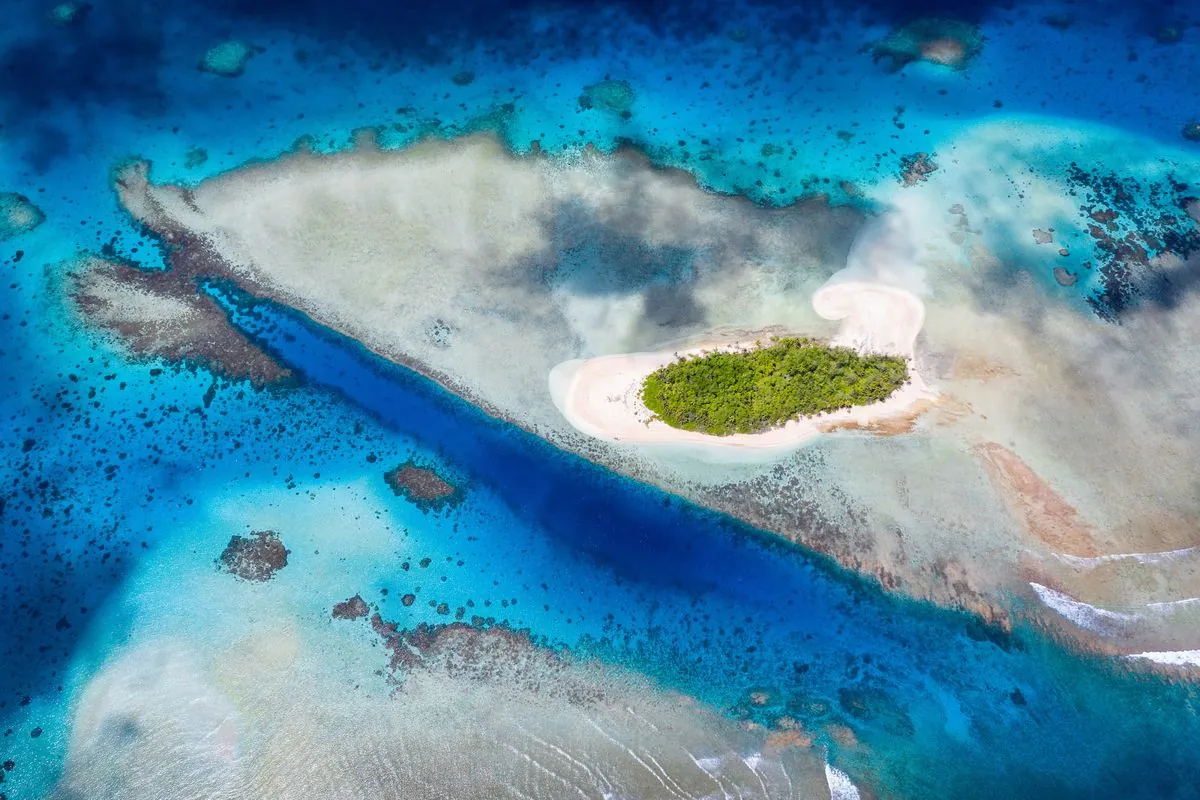Tuvalu's Race Against Time: Fighting for Sovereignty as Seas Rise
Tuvalu, facing existential threat from rising seas, seeks to maintain sovereignty even if submerged. The Pacific nation of 11,000 people grapples with cultural preservation and legal challenges in securing its future.

In the vast expanse of the Pacific Ocean, Tuvalu faces an unprecedented challenge. This small island nation, home to approximately 11,000 people, is engaged in a race against time as rising sea levels threaten its very existence. The country's plight highlights the urgent need for global action on climate change and raises complex questions about sovereignty in a changing world.
Fukanoe Laafai, a 29-year-old clerical worker, embodies the personal dilemmas faced by Tuvaluans. "I think we are about to sink," she says, grappling with the desire to start a family in a land that may not exist for her children's future. This sentiment echoes throughout the nation, where the mean elevation is a mere 2 meters above sea level.
Over the past three decades, Tuvalu has experienced a sea-level rise of 15 centimeters, surpassing the global average by 50%. NASA scientists project that by 2050, daily tides will submerge half of Funafuti, the main atoll where 60% of Tuvaluans reside. The impact is already evident, with saltwater inundation ruining groundwater and affecting crops, forcing residents to rely on rainwater tanks and raised gardens.
In response to this crisis, Tuvalu and Australia announced a landmark climate and security treaty in 2023. This agreement provides a pathway for 280 Tuvaluans to migrate to Australia annually, starting in 2025. However, this solution brings its own set of challenges, particularly concerning the preservation of Tuvaluan culture and identity.

Maani Maani, a 32-year-old IT worker, expresses the cultural dilemma: "To leave a country, you leave the culture you were born with, and culture is everything – family, your sister, your brother. It is everything." This sentiment underscores the deep-rooted connection Tuvaluans have to their land and community.
Despite the looming threat, Tuvalu is not giving up without a fight. The nation is pursuing innovative diplomatic strategies to maintain its sovereignty, even if its land disappears beneath the waves. Tuvalu aims to change international maritime law to retain control of its vast exclusive economic zone, which spans 900,000 square kilometers – more than twice the size of California.
The country is also taking physical measures to buy time. Construction of sea walls and barriers is underway on Funafuti, and Tuvalu has already created 7 hectares of artificial land, with plans for more. These efforts aim to keep parts of the country above water until 2100, though NASA projections suggest a sea-level rise of 1 meter by then, potentially submerging 90% of Funafuti.
Tuvalu's fight extends to the international stage. On September 11, 2024, Prime Minister Feleti Teo will address the United Nations General Assembly, seeking support for Tuvalu's campaign to have its maritime boundaries and statehood recognized as permanent. This move is part of a broader strategy to secure the nation's future, both legally and economically.
"Tuvalu wishes to champion sea level rise to be treated as a standalone agenda, not crowded under the climate change discourse. It is an existential threat to Tuvalu's statehood and survival of its identity."
The economic implications of maintaining sovereignty are significant. Tuvalu's tuna-rich waters generate about US$30 million annually in fishing license fees, while its .tv internet domain brings in at least US$10 million per year. Preserving these revenue streams is crucial for the nation's future, whether on land or in a diaspora.
As Tuvalu navigates these uncharted waters, its story serves as a stark reminder of the human cost of climate change. The nation's struggle to maintain its sovereignty, preserve its culture, and secure a future for its people exemplifies the complex challenges faced by small island states in an era of rising seas.


































